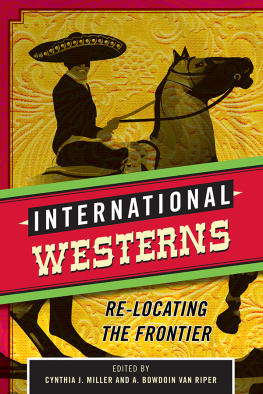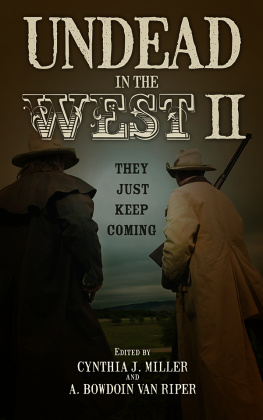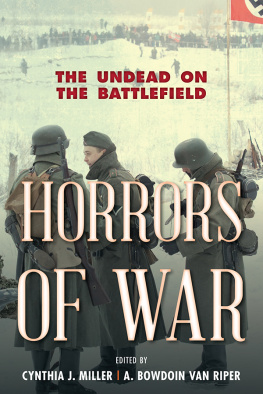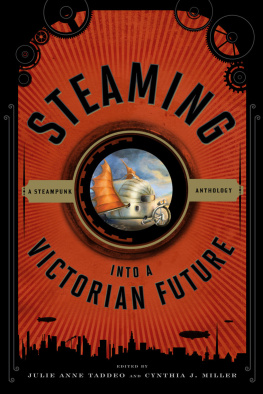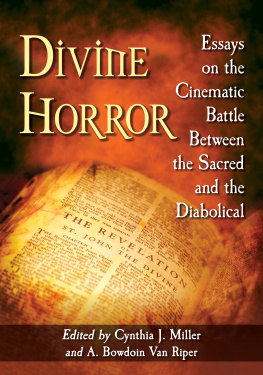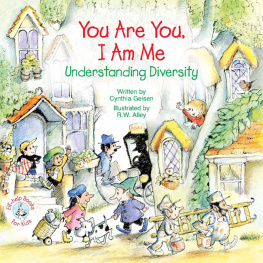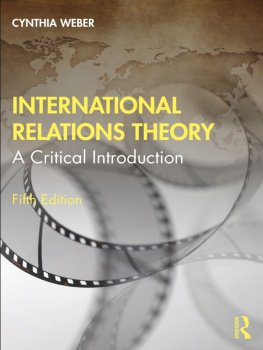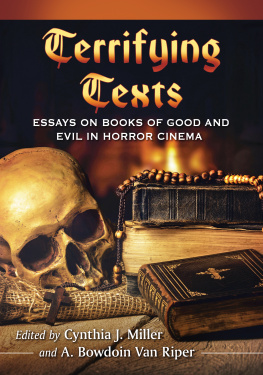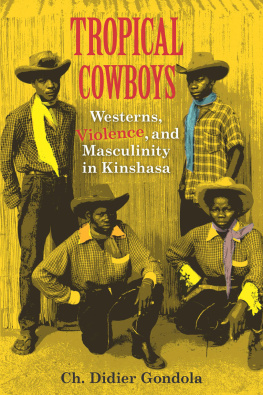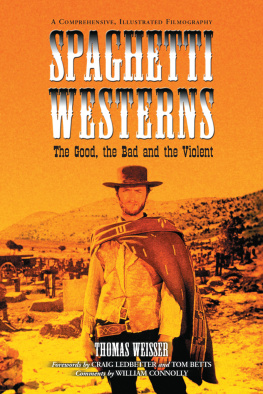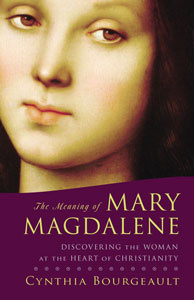Miller Cynthia J. - International Westerns
Here you can read online Miller Cynthia J. - International Westerns full text of the book (entire story) in english for free. Download pdf and epub, get meaning, cover and reviews about this ebook. City: Lanham, year: 2013, publisher: Scarecrow Press, genre: Romance novel. Description of the work, (preface) as well as reviews are available. Best literature library LitArk.com created for fans of good reading and offers a wide selection of genres:
Romance novel
Science fiction
Adventure
Detective
Science
History
Home and family
Prose
Art
Politics
Computer
Non-fiction
Religion
Business
Children
Humor
Choose a favorite category and find really read worthwhile books. Enjoy immersion in the world of imagination, feel the emotions of the characters or learn something new for yourself, make an fascinating discovery.
- Book:International Westerns
- Author:
- Publisher:Scarecrow Press
- Genre:
- Year:2013
- City:Lanham
- Rating:5 / 5
- Favourites:Add to favourites
- Your mark:
- 100
- 1
- 2
- 3
- 4
- 5
International Westerns: summary, description and annotation
We offer to read an annotation, description, summary or preface (depends on what the author of the book "International Westerns" wrote himself). If you haven't found the necessary information about the book — write in the comments, we will try to find it.
International Westerns — read online for free the complete book (whole text) full work
Below is the text of the book, divided by pages. System saving the place of the last page read, allows you to conveniently read the book "International Westerns" online for free, without having to search again every time where you left off. Put a bookmark, and you can go to the page where you finished reading at any time.
Font size:
Interval:
Bookmark:
International Westerns
Re-Locating the Frontier
Edited by Cynthia J. Miller and A. Bowdoin Van Riper
Scarecrow Press, Inc.
Lanham Boulder New York Toronto Plymouth, UK
2014
Published by Scarecrow Press, Inc.
A wholly owned subsidiary of Rowman & Littlefield
4501 Forbes Boulevard, Suite 200, Lanham, Maryland 20706
www.rowman.com
10 Thornbury Road, Plymouth PL6 7PP, United Kingdom
Copyright 2014 by Scarecrow Press, Inc.
All rights reserved. No part of this book may be reproduced in any form or by any electronic or mechanical means, including information storage and retrieval systems, without written permission from the publisher, except by a reviewer who may quote passages in a review.
British Library Cataloguing in Publication Information Available
Library of Congress Cataloging-in-Publication Data
International westerns : re-locating the frontier / edited by Cynthia J. Miller and A. Bowdoin Van Riper.
pages cm
Includes bibliographical references and index.
ISBN 978-0-8108-9287-3 (cloth : alk. paper) ISBN 978-0-8108-9288-0 (ebook) 1. Western filmsHistory and criticism. I. Miller, Cynthia J., 1958- editor of compilation. II. Van Riper, A. Bowdoin, editor of compilation.
PN1995.9.W4I57 2014
791.43'65878dc23 2013030649
 The paper used in this publication meets the minimum requirements of American National Standard for Information SciencesPermanence of Paper for Printed Library Materials, ANSI/NISO Z39.48-1992. Printed in the United States of America
The paper used in this publication meets the minimum requirements of American National Standard for Information SciencesPermanence of Paper for Printed Library Materials, ANSI/NISO Z39.48-1992. Printed in the United States of America
To all those who carry the Spirit of the West in their hearts,
across the deserts, mountains, dusty roads, and borders of the world...
and who know that a frontier, in any language, signals adventure
Contents
Acknowledgments
T his volume draws on a long tradition of Western scholarship and so owes a great debt to those who have sparked our interest and challenged our thinking as we explored international frontiers. The influences of John Cawelti, Christopher Frayling, Jim Kitses, M. Elise Marubbio, Peter Stanfield, Jon Tuska, Will Wright, and so many others can be found here, both in text and in spirit. We would also like to continue to express our gratitude to Stephen Ryan at Scarecrow Press for his unending good humor and tireless support of our projects. Additionally, our sincere thanks go to Peter Coad for his generosity in sharing his art with us, to Manuel Barrero of Tebeosfera and Professor Umberto Bartocci for their kind assistance with images, and to Timothy Scheie for organizing the conference panel that initially turned our attention to international Westerns. Finally, our deep appreciation goes to the nineteen fine scholars who have been our saddle pals on this journey across countless diverse frontiers. Thank you, one and all.
Introduction
Cynthia J. Miller and A. Bowdoin Van Riper
D espite the fact that, as Christopher Fraying points out, three of the founding fathers of the modern Western... were Irish, German, and Austrian by origin, the Western is generally considered the most American of genres, gathering up tales of mythic heroes who prevailed over man and nature to bring civilization to the wilderness. In films from the silent era onward, the frontier, or more accurately the process by which it was conquered, has been celebrated as one of the defining elements in American national identitythe catalyst and proving ground for the courage, individuality, and dynamism of the American characterthe dominant individualism that Frederick Jackson Turner saw as a hallmark of that character. For Turner and those who followed, the frontier was the wellspring of the independent, indomitable American spirit. It was the land of Manifest Destinyof conquestand the farmers, ranchers, schoolmarms, saloon girls, entrepreneurs, and adventurers who settled the West represented a progressive force that carried the beacon of change to the wilderness, which existed only temporarily beyond civilizations reach. These notions have been embedded in both popular culture and the national imagination in films beginning with The Great Train Robbery (1903), continuing through the Golden Age of the B Western, and extending to contemporary fare such as Meeks Cutoff (2010), the animated Rango (2011), and The Lone Ranger (2013). Even the revisionist trend that began in the genre in the late 1960s, characterized by films such as The Wild Bunch (1969) and McCabe & Mrs. Miller (1971), highlighted these enduring notions even as it called them into question.
Heroes of this traditional West have long been recognized as guardians of civilizationpositioned with one foot in the wild and one foot in the civilized worldbearing the responsibility of maintaining the boundaries between order and chaos, civilization and barbarism. Agents of right and reason, yet symbols of freedom and autonomy, Western heroes balanced frontier independence with concern for the common good, and they tempered the need for violence with a mandate for restraint. They were champions of the moral order and icons of national identity, playing a leading role not only in the taming of the West, but in expanding and extending mainstream American values and lifeways across borders, boundaries, and ideologies. Gunslingers, cattle rustlers, warriors, and bandidos all ultimately succumbed to the heros campaigns on behalf of bringing the frontier and its inhabitants under the control of civilized law.
This vision of the American West, immortalized, promoted, and expanded in countless cinematic narratives, hinged on notions of progressthe forward march of ideas and ingenuityin the service of the project of nation-making. Railroad tracks, telegraph lines, and barbed wire fences all symbolized the advance of Eastern civilization through the mountains and across the plains of the frontier, their relentless spread across the stark, unending landscape representing both a blessing and a curse. Topography, wildlife, and of course, the lands indigenous inhabitants, all were framed by conflicting sentiments, both as romantic icons of the wild and as obstacles to the unquestioned right of white settlers to occupy and transform the land. The mythology of the frontier treated the conquest of such obstacles as inevitable because, as R. Philip Loy notes, no problem was too big for men of vision and daring.
In The Six-Gun Mystique , John G. Cawelti observes that the Westerns capacity to accommodate many different kinds of meaning... [has] made the formula successful as popular art and entertainment over many generations. Taking a broad view of the genre, this statement holds true not only over time and across generations, but in the face of other cultural and narrative shifts as well. As we have discussed elsewhere, the genres flexibility has lent itself to compelling, if not always commercially successful, mergings with genres such as science fiction, fantasy, and horror. However, there are other kinds of meaningsparticularly national and ethnic meanings that appropriate, adapt, and reinvent the Western outside of the geographic and cultural confines of North Americathat also deserve to be considered. In this volume, our contributors set out to explore some of those less-charted frontiersin such diverse national and cinematic contexts as Brazil, England, Hungary, Kurdistan, Japan, Bangladesh, and elsewheredemonstrating that the power of Western themes, tropes, and character types knows no borders or boundaries.
Numerous other scholars have explored the genre and its impact from various vantage points: Will Wright has examined the structure of the genres narratives, while Jon Tuska has offered more thematic critical approaches; Peter Stanfield has analyzed the role of cowboy crooners as exemplars of heartland values, while Ryan McMaken has focused on commie cowboys as cultural critique. While each of these is instructive when considering the genre in relation to American culture, the discussion becomes more complex when the genre is loosened from its cultural moorings. One particularly useful way to think about adaptations and appropriations of the Western genre in an international context, as Mark Cronlund Anderson suggests, is to begin by examining the types of films gathered under its mantle. Anderson partitions these into frontier Westerns, which embody and relate the frontier myth but may or may not employ standard Western symbols and tropes, and traditional Westerns, which borrow and apply the conventions of the frontier but do not necessarily adhere closely to the mythological frontier tale. They are once-removed, second-order semiological systems. For Anderson, the traditional Western, then, is not synonymous with the myth, but borrows from its signifiers, while the frontier Western partakes of the mythic narrative across time, place, and primary narrative arc: Many films about the mythical frontier bear scant iconographic resemblance to traditional westerns. Here The Big Lebowski , Starship Troopers , African Queen , or many others, come to mind. Our authors in-depth examinations of Western and Western-inspired films from a wide range of national film traditions reveal numerous illustrations of these two models. Some films employ the genres iconsthe heroes and villains, cattle and cacti, hats and spursin ways that are evocative of the frontier written into being by Turner and those who came after him. Other films transplant the mythic frontier to territories far from its North American origins, embracing the myth and its meanings in new, often strange-seeming narrative contexts.
Next pageFont size:
Interval:
Bookmark:
Similar books «International Westerns»
Look at similar books to International Westerns. We have selected literature similar in name and meaning in the hope of providing readers with more options to find new, interesting, not yet read works.
Discussion, reviews of the book International Westerns and just readers' own opinions. Leave your comments, write what you think about the work, its meaning or the main characters. Specify what exactly you liked and what you didn't like, and why you think so.

